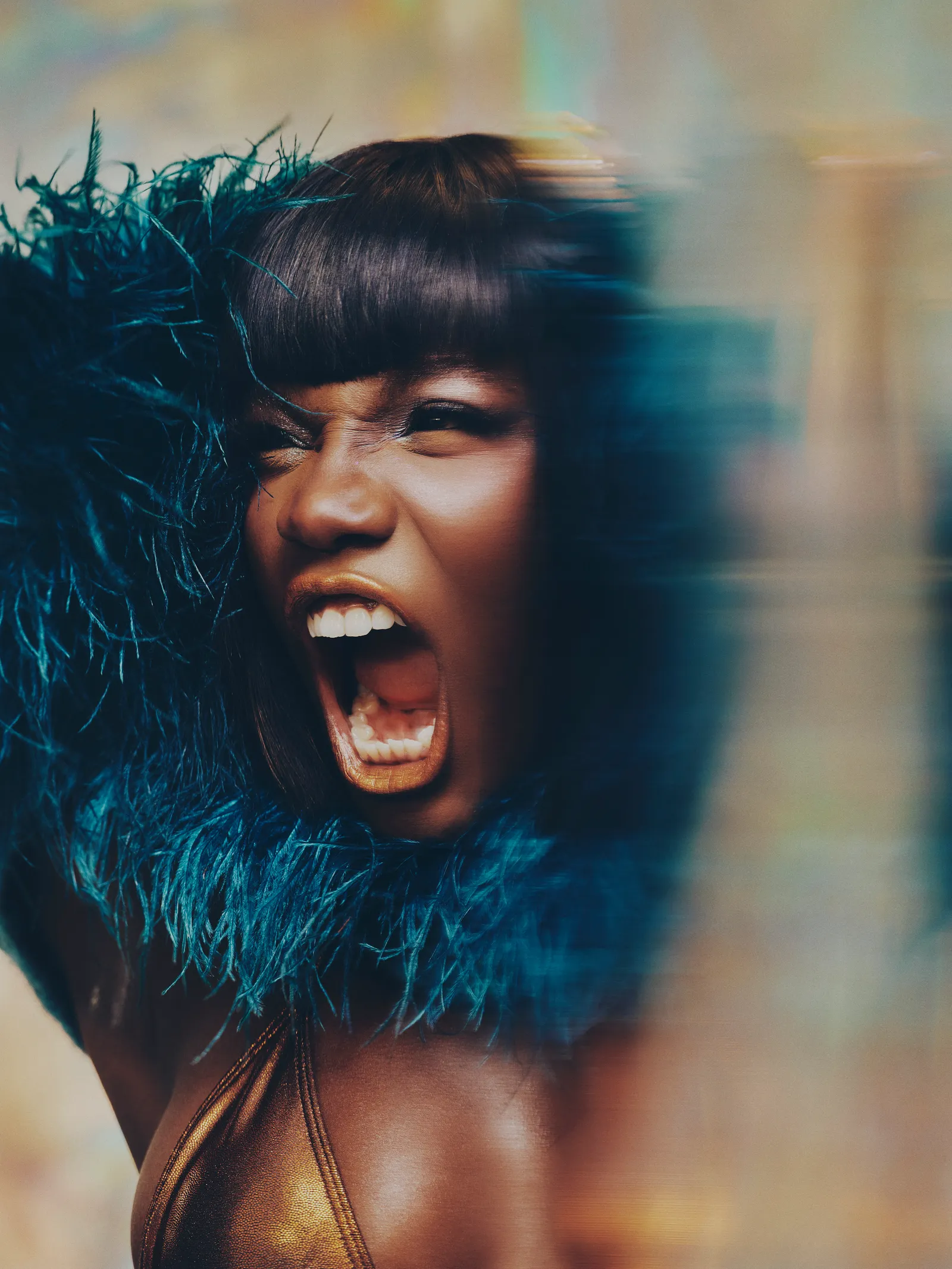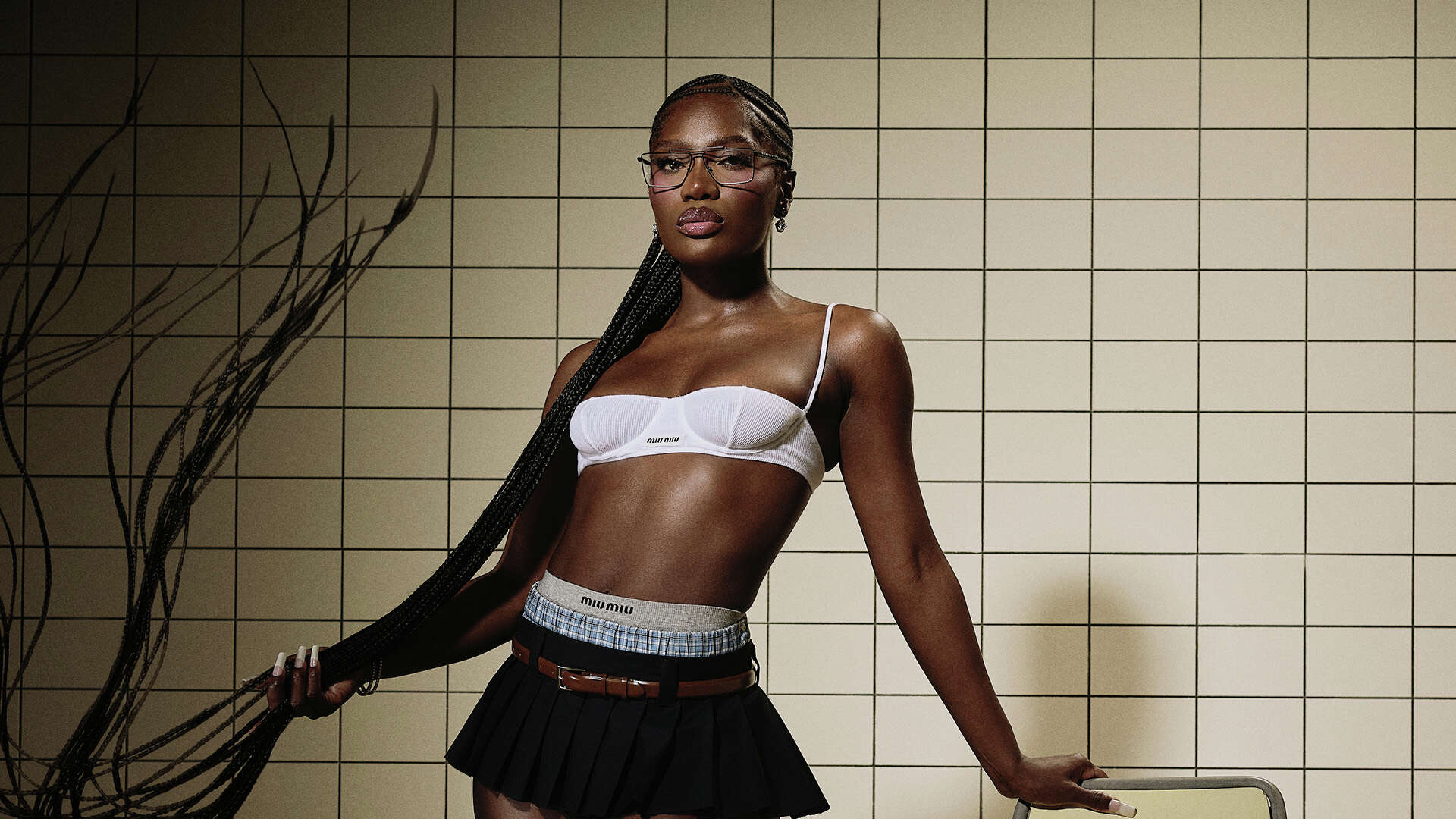
From viral beginnings to Grammy gold, Doechii’s rise isn’t just another success story; it’s the sound of a new era, where rage, faith, and femininity collide.
From viral beginnings to Grammy gold, Doechii’s rise isn’t just another success story; it’s the sound of a new era, where rage, faith, and femininity collide.
On the night of the 2025 Grammy Awards, the lights dimmed, and the air stilled as Doechii stepped onto the stage, draped in metallic leather, drenched in purpose. Her mixtape Alligator Bites Never Heal had just clinched the Grammy for Best Rap Album, making her only the third woman in history to ever win that category after Lauryn Hill and Cardi B.
It wasn’t just a win. It was a declaration.
“I want to tell you: You can do it. Anything is possible. You are exactly who you need to be to be right where you are.” — Doechii, Grammy Acceptance Speech.
The world finally caught up to what the internet had already known: Doechii is not a trend. She’s a transformation.
Before the Grammys and fashion spreads, Jaylah Ji’Mya Hickmon was just another creative kid from Tampa, Florida, raised in a Christian home where Sunday choir rehearsals clashed with weekday ballet and cheerleading practice. Her father, a local rapper known as Snatcha Da Boss, planted the first seed of rhythm and rebellion.
In 2016, she began releasing music on SoundCloud. Five years later, she uploaded “Yucky Blucky Fruitcake”, a tongue-in-cheek confessional that exploded on TikTok, pulling her out of digital obscurity and into viral infamy. The track wasn’t just catchy; it was cinematic, introducing the character she calls her “Swamp Princess,” a symbol of survival and Southern grit.
By 2022, she was signed to Top Dawg Entertainment (TDE) the same powerhouse behind Kendrick Lamar and SZA. Making her the label’s first female rapper.
“I was never meant to fit in. I was meant to expand what ‘in’ means.” — Doechii, Teen Vogue, 2025
Alligator Bites Never Heal isn’t just a title.
Across 19 tracks, Doechii spits, sings, and snarls her way through trauma, resilience, and rebirth. Critics at Grammy.com called it “a sonic evolution of rage, faith, and femininity”.
Standout records like “Denial Is a River” and “Nissan Altima” reveal her emotional spectrum both raw and theatrical. The production swings between grunge, trap, gospel, and house, proof that Doechii’s artistry lives beyond genre.
“I am nobody’s prey. I was born to be the predator.” — Doechii, Grammy Interview, 2025
That predatory stance isn’t arrogance; it’s self-defense in an industry that often chews through women before it crowns them.

After the Grammys, Doechii didn’t slow down. She was crowned Billboard’s Woman of the Year 2025, joining a lineage that includes Beyoncé and SZA.
Fashion houses began calling. She became a front-row fixture at Balmain and Mugler, and her Vogue spread half-goddess, half-beast was a statement in itself: femininity as armor.
Her style, much like her sound, is deliberately contradictory, pearls with spikes, gospel harmonies with drill basslines. Each look, each lyric, extends her message: that Black women are multifaceted, powerful, and impossible to define.
In a rap landscape obsessed with virality, Doechii represents endurance. She’s not just making music. She’s reshaping what mainstream hip-hop can sound and look like.
Her rise parallels a broader movement: Black women reclaiming authorship in spaces that once excluded them. From Ayo Edebiri in Hollywood to Coco Jones in R&B, Doechii’s story fits into an expanding universe of Black creators who aren’t waiting for permission.
“Hip-hop has always been about truth. I just tell mine differently.” — Doechii, People Magazine, 2025
In a 2025 NME interview, she confirmed that her debut full-length studio album is slated for release in 2026. Fans can expect even more experimentation merging industrial sounds, spoken-word poetry, and orchestral rap.
She’s also hinted at collaborations with Afrobeats and UK Grime artists, signaling a new phase: Doechii as a global force.
Doechii’s evolution from a fired retail worker to Grammy winner in five years isn’t just about personal triumph. It’s about the redefinition of power in modern entertainment.
She is part of a lineage of Black women who turned vulnerability into revolution, but with Doechii, the message hits differently: the predator is no longer something to fear; it’s something to become.
Comments